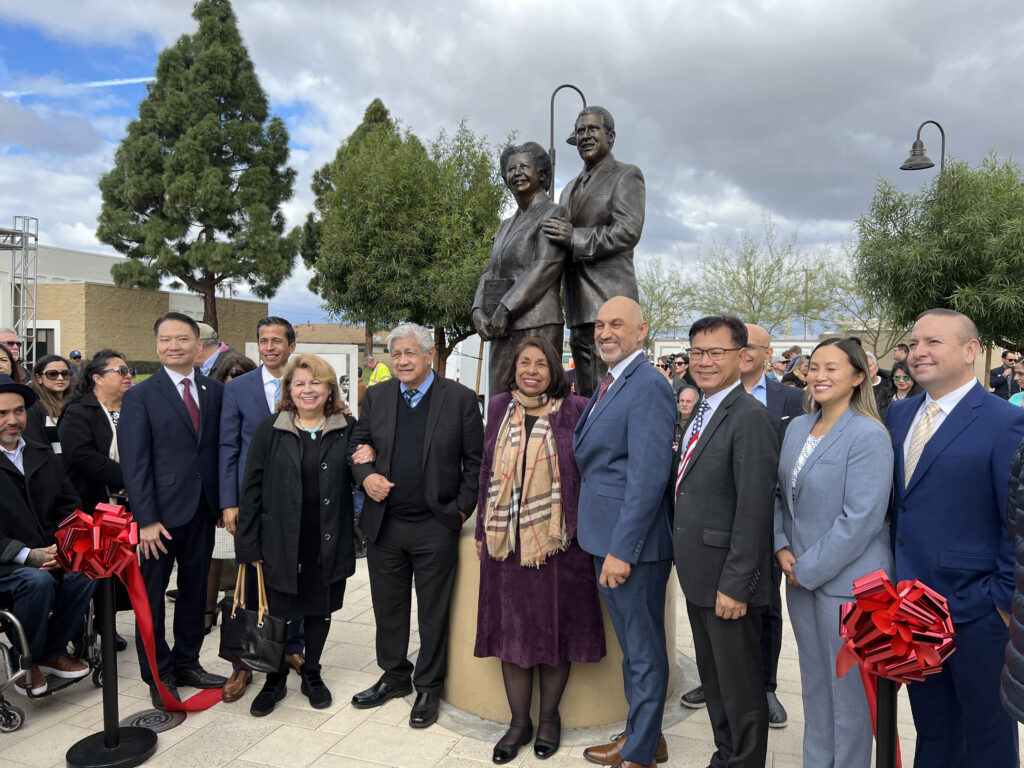
Public schools across California will include the landmark civil rights case Mendez v. Westminster in history and social science courses as a result of legislation signed by Gov. Gavin Newsom.
Introduced by Senator Tom Umberg, D-Santa Ana, and Assemblymember Tri Ta, R-Westminster, Assembly Bill 1805 was drafted to highlight the Orange County case’s pivotal role in ending forced school segregation in California, setting the stage for the federal Brown v. Board decision. Newsom put his signature on the bipartisan bill on Sept. 20.
On Tuesday, Orange County Superintendent of Schools Dr. Stefan Bean reflected on the case’s historical and educational significance.

“This legislation will help ensure that every student understands the significance of Mendez v. Westminster, which exemplifies the immense potential of uniting for a common purpose — educational access,” Bean said. “It was a groundbreaking ruling that stands today as a testament to the strength of our community and serves as a powerful reminder of what we can achieve when we work together to support all students.”
The case of Mendez, et al v. Westminster, et al dates back to 1943, when Gonzalo and Felicitas Mendez attempted to enroll their children at Westminster’s 17th Street School but were denied entry due to their Mexican heritage. Despite their U.S. citizenship, they were directed to a lesser-quality school designated for Mexican-American students.
Joining forces with four other Mexican-American families and Los Angeles attorney David Marcus, the Mendez family challenged the basis for legalized school segregation in federal court, arguing it violated the Equal Protection Clause of the 14th Amendment.
In February 1946, the U.S. District Court ruled in their favor, declaring segregation policies unconstitutional. That decision was upheld by the 9th Circuit Court of Appeals in 1947.
“The success of the lawsuit led to legislation in California that repealed laws mandating segregation and set legal and strategic precedent for other cases striving to end educational segregation, including the national landmark case of Brown v. Board of Education,” according to the legislation.
“I am just so happy, I’m so thrilled and grateful that the dream has finally come true.” — Sylvia Mendez
In recent years, Sylvia Mendez, daughter of Gonzalo and Felicitas, has been instrumental in raising awareness about her parents’ legal action, which has been the subject of news articles, books, documentaries and even a commemorative U.S. postage stamp. Schools in Santa Ana and Los Angeles now bear her parents’ names, and her mother was celebrated with a Google Doodle in 2020.
The City of Westminster also honors the historic case at Mendez Tribute Monument Park, which opened in 2022. A city trail with interpretive panels is also in the works.
AB 1805 passed unanimously in both the Assembly and the Senate after being introduced in January. It stipulates that beginning Jan. 1, 2025, when new history-social science materials are adopted, the Instructional Quality Commission must consider including comprehensive content about the case.
“I am so grateful to Tri Ta and Senator Tom Umberg for putting this (legislation) through,” Sylvia Mendez told the OCDE Newsroom on Tuesday. “It was a bipartisan effort. Especially right now, with our country so divided, it’s wonderful to have people come together to make this happen. I think it’s so important for us to know the history of California.”
Mendez, who was 8 when she and her brothers were turned away from 17th Street School, said students in history classes will get to know that it wasn’t just the Mendez family that pursued educational equality. It was a coalition of families that came together — names including Estrada, Guzman, Palomino and Ramirez — along with outside organizations that filed briefs in support of the plaintiffs.
“It wasn’t just Latinos fighting,” she said. “Everybody came together.”
It similarly took a coalition of advocates to make AB 1805 a law, she noted.
“Look at all the people who have been helping in this scenario, trying to get it through so it can be taught in schools,” Mendez said. “I am just so happy, I’m so thrilled and grateful that the dream has finally come true.”
